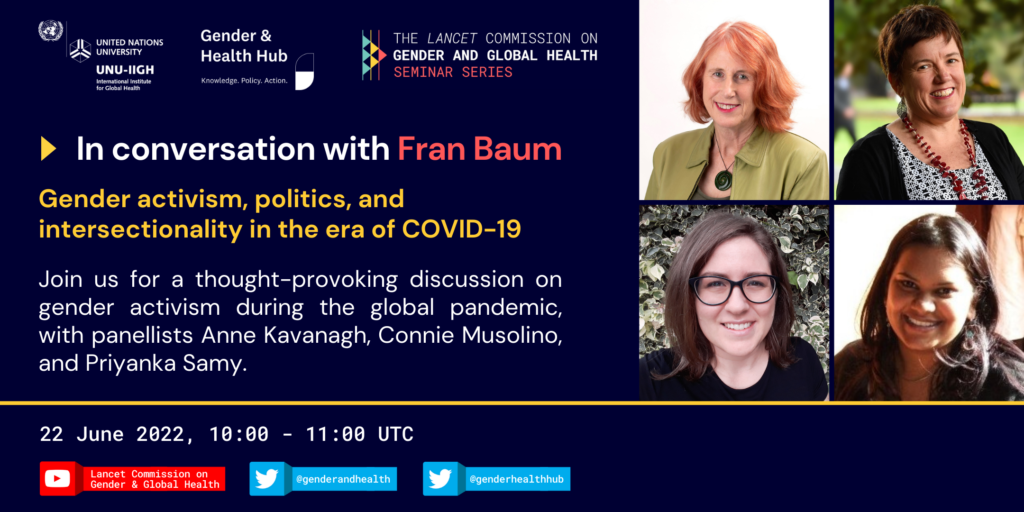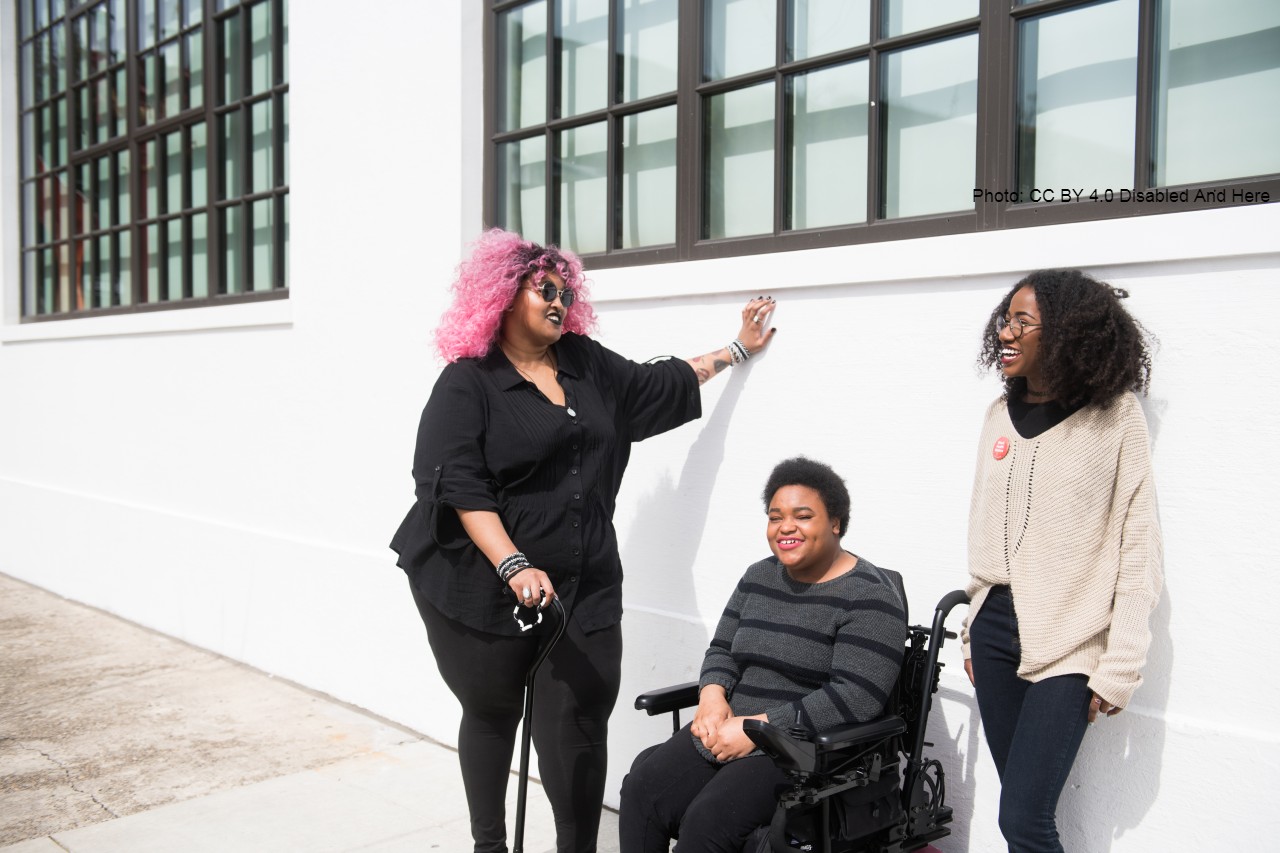- COVID-19 has highlighted and worsened inequities of gender, class, race, caste, disability and sexuality
- Examines how gender activists responded to the pressure of COVID-19 and government interventions, against a backdrop of the politicisation of gender-related issues and increasing recognition of the importance of intersectionalities.
- Fran Baum in conversation with Connie Musolino, Jennie Popay, and Priyanka Samy
- This event was held on Wednesday 22 June at 10am UTC | 6pm MYT | 12 noon CAT
The Lancet Commission on Gender and Global Health and UNU Gender & Health Hub present
In Conversation With Fran Baum
Gender activism, politics, and intersectionality in the era of COVID-19

COVID-19 has highlighted and worsened many inequities that existed before the pandemic. These inequities include those of gender, class, race, caste, disability and sexuality. Examination of these inequities demonstrates the intersectionality between them and that effective policy responses need to be sensitive to this. Without an intersectional approach people will fall through the cracks. The gendered and race nature of the care economy has become apparent as has the low status and pay workers in this economy experience.
While many people with a disability have been at higher risk of infection and death during the pandemic, their access to health and care services has not been prioritized, and disability advocates have highlighted the ongoing marginalization of their voices. In addition, the majority of the social care workforce are women, employed on contracts without access to paid leave and with low wages. Despite being essential workers they often experienced financial hardship and were exposed to occupational risks from COVID-19.
This session will examine how gender activists responded to the pressure of COVID-19 and government interventions, against a backdrop of the politicisation of gender-related issues and increasing recognition of the importance of intersectionalities.
- Professor Fran Baum is Professor of Health Equity, NHMRC Investigator Fellow, Stretton Institute/School of Social Science, Faculty of Arts, University of Adelaide
- Prof. Jennie Popay is Distinguished Professor of Sociology and Public Health, Division of Health Research, Lancaster University
- Dr. Connie Musolino is a Research Fellow at Stretton Health Equity in the Stretton Institute. She is an early career researcher with expertise in social science, gender studies and public health, and qualitative methodologies
- Ms. Priyanka Samy is an intersectional feminist and anti-caste activist associated with the ‘National Federation of Dalit Women’ (NFDW), a pan-Indian grassroots network of Dalit women’s organisations.
Seminar objectives
- To examine how gender activists responded to the pressures of COVID-19 and governments’ responses to the pandemic
- To analyse how gender-related issues were politicized during the COVID-19 pandemic
- To examine the extent to which government systems recognize and act on intersectionalities





